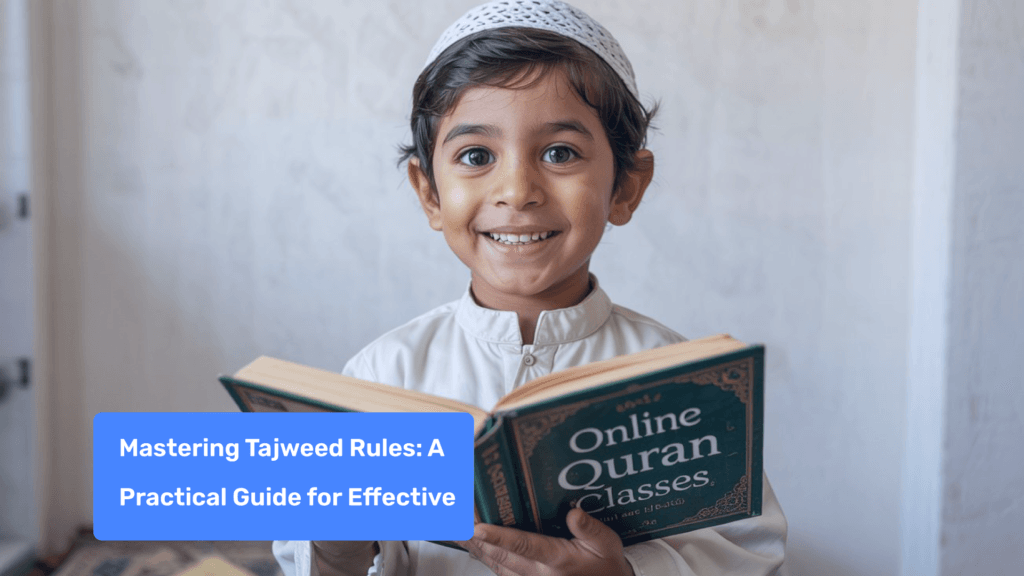Learning to read the Holy Quran is a deeply rewarding spiritual journey that connects Muslims with the divine words of Allah. However, many learners—whether beginners or those returning to their studies—find themselves facing challenges along the way. This comprehensive guide offers practical strategies and insights to help you develop effective Quran reading skills, regardless of your current level.
Getting Started with Quran Reading
Learn the Basic Arabic Language Rules
The Quran was revealed in Arabic, making it essential to learn Arabic for proper recitation. While translation can help you understand the meaning, there’s something profound about connecting directly with the original text as it was revealed to Prophet Muhammad (peace be upon him).
Begin by mastering the Arabic alphabet (known as the abjad). Unlike English with its 26 letters, Arabic has 28 letters, each with distinct sounds that may not exist in your native language. Pay special attention to:
- The shapes of letters, which change depending on their position in a word (beginning, middle, or end)
- The correct articulation points (makharij) of each letter
- The short vowels (harakat) that guide pronunciation but aren’t always written
Dedicated apps like “Learn Quran” or “Noor al-Bayan” offer interactive lessons with audio guidance to help you correctly pronounce each letter. Remember that proper pronunciation is crucial, as a small mistake can change the meaning of a word entirely.
Understanding basic Arabic grammar will also enhance your Quran reading. Focus initially on recognizing the structure of sentences and how words connect. This foundation will make your reading more fluid and help you grasp meanings more intuitively as you progress.
Many learners find it helpful to learn common Arabic words that appear frequently in the Quran. Words like “Allah” (God), “Rahman” (the Most Merciful), and “Nas” (people) appear repeatedly. Building this vocabulary gradually makes reading less daunting and more meaningful.

Set Clear Goals and Gather Resources
Like any significant undertaking, learning to read the Quran benefits from thoughtful planning and organization. Setting specific, achievable goals creates focus and provides a sense of accomplishment as you progress.
Many learners find it beneficial to learn Quran online due to the flexibility and accessibility of online courses.
Consider establishing these types of goals:
- Short-term objectives: “I will learn five new Arabic letters this week” or “I will practice reading Surah Al-Fatiha daily for 15 minutes”
- Medium-term targets: “I will complete reading Juz Amma (the 30th part of the Quran) in three months” or “I will master basic Tajweed rules within six months”
- Long-term aspirations: “I will be able to recite the entire Quran with proper Tajweed within two years”
Gather high-quality resources to support your learning journey:
- A proper Quran mushaf (physical copy) with clear print and tajweed color-coding
- Digital resources such as Quran apps with recitation features (like Quran Explorer or Muslim Pro)
- Learning materials specific to your level (beginner guides like Noorani Qaida or more advanced tajweed books)
- Audio recordings by renowned reciters to train your ear to proper recitation patterns
Creating a consistent schedule may be the most important step. Even 15-20 minutes of daily practice yields better results than occasional lengthy sessions. Consider your natural energy patterns—some people learn best in the early morning, while others retain information better in the evening.
Many successful learners integrate Quran reading into existing routines, such as after Fajr prayer or before bedtime. Set calendar reminders or use habit-tracking apps to maintain consistency until the practice becomes second nature.
Building Foundations in Quran Reading
Learn to Read Arabic Basics
For absolute beginners, traditional primers like Noorani Qaida or Al-Qaida an-nooraniya provide systematic progression through Arabic reading fundamentals. These time-tested resources start with individual letters and gradually combine them into words and phrases.
The learning sequence typically follows this progression:
- Individual letter recognition: Learning the shape and sound of each letter
- Letter combinations: Understanding how letters connect in words
- Vowel applications: Learning how short vowels (fatha, kasra, damma) and long vowels affect pronunciation
- Special rules: Mastering unique features like sukun (vowel omission) and shadda (letter emphasis)
- Word formation: Reading complete words by combining letters and vowels
- Simple sentences: Progressing to basic Quranic verses and phrases
Online Quran teachers can provide personalized guidance and support, making the learning process more effective and convenient.
Practice should include both reading and writing. Writing Arabic letters helps reinforce recognition while developing muscle memory that aids recitation. Trace letters repeatedly until you can form them confidently on your own.
Use multi-sensory approaches to reinforce learning—say the sounds aloud while writing them, record yourself and play it back, or use tactile aids like magnetic Arabic letters. Research shows that engaging multiple senses enhances retention, especially when learning a new language.
Study the Basics of the Quran
Understanding the structure and organization of the Quran provides context for your reading practice. The Quran contains 114 chapters (surahs) of varying lengths, divided into 30 parts (juz) for ease of recitation over a month.
Begin by familiarizing yourself with the most frequently recited surahs, particularly:
- Surah Al-Fatiha: The opening chapter, recited in every prayer
- The short surahs from Juz Amma: These include Al-Ikhlas, Al-Falaq, and An-Nas, which are relatively brief and often memorized first
While your primary goal is developing reading skills, pairing your practice with translations helps maintain motivation by connecting to the meaning. Many beginners find it inspiring to understand what they’re reciting, even at a basic level.
The Quran was revealed over 23 years, with some chapters revealed in Mecca (typically focusing on faith, monotheism, and the afterlife) and others in Medina (often addressing community matters, legal issues, and interactions with other faith communities). This contextual knowledge adds depth to your reading experience.

Mastering Tajweed and Quran Recitation
Learn Tajweed to Read Quran Better
Tajweed refers to the rules governing Quranic pronunciation, ensuring the text is recited exactly as it was revealed to Prophet Muhammad (peace be upon him). These rules aren’t merely aesthetic—they preserve the precise meanings intended in the divine revelation.
Key tajweed concepts include:
- Makhaarij al-huroof: The correct articulation points for each letter
- Sifaat al-huroof: The characteristics of letters (such as heaviness or lightness)
- Rules of noon saakinah and tanween: How to pronounce certain letter combinations
- Rules of meem saakinah: Special considerations for the letter meem when it has no vowel
- Madd rules: Guidelines for extending certain sounds for specific durations
- Waqf rules: Proper ways to pause during recitation
While tajweed may seem overwhelming at first, approach it systematically. Begin with fundamental rules like heavy and light letters, then progress to more specific guidelines. Online courses specifically focused on tajweed (like those offered by Bayyinah Institute or Studio Arabiya) break down these concepts into manageable lessons.
Visual learning aids can be particularly helpful for tajweed study. Many modern Quran prints use color-coding to indicate different tajweed rules directly in the text. For example, letters that should be pronounced with a ghunnah (nasalization) might appear in a specific color as a reminder.
Practice Quran Recitation Regularly
Consistent practice transforms knowledge into skill. Set aside dedicated time for recitation practice—ideally daily, even if just for a few minutes.
Effective practice techniques include:
- Repetition with attention: Recite short passages repeatedly until they flow naturally
- Listen-and-repeat: Listen to expert reciters and imitate their pronunciation
- Record and review: Record your recitation and compare it to professional renditions
- Gradual progression: Master short verses before attempting longer passages
- Recitation circles: Practice with others when possible for immediate feedback
Many learners find the “chunking method” effective—focus on perfecting a small section (perhaps 2-3 verses) before moving on. This builds confidence and ensures quality over quantity.
Consider incorporating recitation into your prayers, beginning with the surahs you’ve mastered. This provides additional practice opportunities and enriches your worship experience.
Learning Quran Online
Take Advantage of Online Quran Classes and Tutors
The digital revolution has transformed Quranic education, making expert instruction accessible through online Quran teachers regardless of geographical location. Online learning offers unique advantages:
- Personalized attention: One-on-one sessions tailored to your specific needs
- Convenience: Study from home on your schedule, eliminating commute time
- Recorded lessons: Review sessions later for reinforcement
- Global expertise: Access teachers with specialized qualifications
- Interactive tools: Digital Qurans, screen sharing, and instant feedback
When selecting an online Quran academy or tutor, consider these factors:
- Teacher credentials: Look for ijazah certification (formal authorization to teach)
- Teaching methodology: Ensure their approach matches your learning style
- Technology platform: Test the audio/video quality and user interface
- Student testimonials: Seek reviews from current and former students
- Trial lessons: Most reputable services offer sample sessions to assess compatibility
Online platforms like Qutor, Studio Arabiya, and Understand Quran Academy offer structured programs combining live instruction with self-paced materials. Many provide specialized courses for beginners, tajweed mastery, or memorization.
Learn Quranic Arabic Online
While basic recitation is possible without understanding Arabic, learning Quranic Arabic significantly enhances your connection with the text. Online courses specifically focused on Quranic Arabic (rather than modern standard Arabic) offer targeted instruction for Quran readers.
These programs typically emphasize:
- High-frequency vocabulary: Words that appear repeatedly in the Quran
- Grammar structures: Common patterns used in Quranic discourse
- Root word systems: Understanding how related words derive from shared roots
- Contextual meanings: How words function specifically within Quranic usage
Supplementary tools like Quranic dictionary apps (e.g., Quranic Arabic Corpus) allow you to click on any word in the Quran to see its translation, grammatical analysis, and root. This interactive approach builds vocabulary organically as you read.
Language exchange platforms can connect you with Arabic speakers willing to help with pronunciation in exchange for practice in your native language—a mutually beneficial arrangement that adds a social dimension to your learning.
Tracking Progress and Overcoming Challenges
Track Your Progress During the Learning Journey
Tracking progress is an essential aspect of learning Quran online. It helps learners stay motivated, identify areas of improvement, and adjust their learning strategy accordingly. Here are some tips to track progress during the learning journey:
- Keep a Learning Journal: Document your daily progress, noting down the verses you’ve learned and reflecting on your accomplishments. This practice not only helps you stay organized but also provides a sense of achievement as you look back on your journey.
- Set Milestones: Break down your learning goals into smaller, achievable milestones. Celebrate each time you reach one, whether it’s mastering a new letter, completing a surah, or perfecting a tajweed rule. These small victories keep you motivated and focused.
- Seek Feedback: Regularly ask your online Quran teacher for feedback on your progress. Their guidance can help you identify areas for improvement and provide personalized tips to enhance your learning.
- Use Learning Apps: Utilize learning apps that track your progress, provide personalized feedback, and offer interactive exercises to reinforce your learning. Apps like “Quran Companion” or “Tajweed Quran” can be valuable tools in your learning arsenal.
By consistently tracking your progress, you can stay motivated and make informed adjustments to your learning strategy, ensuring steady improvement in your Quran reading skills.

Overcome Challenges and Difficulties
Every Quran learner encounters obstacles. Anticipating common challenges and preparing strategies to overcome them can prevent minor setbacks from derailing your progress.
Common challenges include:
- Pronunciation difficulties: Some Arabic sounds don’t exist in other languages
- Consistency struggles: Life’s demands interrupt study routines
- Memorization plateaus: Periods where retention seems particularly difficult
- Motivation fluctuations: Times when progress feels slow or unrewarding
- Technical challenges: For online learners, technology issues can disrupt lessons
When facing pronunciation difficulties, break problematic sounds into components and practice the mouth positions separately before combining them. Video tutorials that show the tongue and throat positions can be particularly helpful.
For consistency challenges, consider “micro-practices” throughout the day—five minutes of review while waiting for coffee to brew or listening to recitation during commutes. These small touchpoints maintain connection with the material when longer sessions aren’t possible.
Remember that learning the Quran is a spiritual journey as much as an educational one. During difficult periods, reconnect with your intention (niyyah) for learning. Many find that supplementing technical practice with reflections on the Quran’s meaning and relevance to their lives renews motivation.
Additional Tips and Resources
Learn How to Read Quran Effectively
Beyond the fundamental techniques already discussed, consider these advanced strategies to enhance your learning:
- Study in community: Join tajweed circles or study groups for mutual encouragement
- Teach others: Explaining concepts reinforces your own understanding
- Diversify resources: Combine different learning approaches for comprehensive understanding
- Leverage technology: Use specialized apps like “Quran Memorizer” that track your progress
- Create an immersive environment: Surround yourself with Arabic audio, visual cues, and regular exposure
Understanding the meanings behind what you’re reading transforms mechanical recitation into spiritual connection. While focusing primarily on reading skills, gradually incorporate translations and brief tafsir (exegesis) to appreciate the depth of what you’re reciting.
Many learners find benefit in following the recitation style (qira’at) of a particular expert. Traditional methods include listening repeatedly to the same reciter (like Mishary Rashid Alafasy or Abdelbasset Abdessamad) until you naturally absorb their rhythm and pronunciation patterns.
Complete Guide to Learning Quran
Learning Quran online requires a structured approach, dedication, and the right resources. Here’s a complete guide to help you get started:
- Step 1: Learn the Arabic Alphabet: Begin by mastering the Arabic alphabet, the foundation of reading the Quran. Familiarize yourself with the shapes, sounds, and articulation points of each letter. Use resources like Noorani Qaida or interactive apps to aid your learning.
- Step 2: Understand Quranic Arabic: Learn the basics of Quranic Arabic, including grammar, vocabulary, and pronunciation. Focus on high-frequency words and common grammatical structures to build a strong foundation.
- Step 3: Practice Quran Recitation: Regularly practice reciting the Quran with proper pronunciation, intonation, and rhythm. Listen to expert reciters and try to mimic their style to improve your recitation skills.
- Step 4: Learn Tajweed: Study Tajweed, the science of reciting the Quran with correct pronunciation and intonation. Start with basic rules and gradually move to more advanced concepts. Online courses and color-coded Qurans can be helpful resources.
- Step 5: Read Quran Fluently: Aim to read the Quran fluently, with proper pronunciation and intonation. Practice regularly, focusing on both accuracy and fluency. Use repetition and gradual progression to build confidence.
- Step 6: Memorize Quran: Begin memorizing Quranic verses, starting with shorter surahs. Use techniques like repetition, listening, and writing to aid memorization. Regularly review what you’ve memorized to ensure retention.
- Step 7: Review and Reflect: Regularly review your progress and reflect on your learning journey. Revisit previously learned material to reinforce your knowledge and ensure long-term retention.
By following these steps and maintaining consistent practice, you can become proficient in reading and reciting the Quran online. Remember, the journey of learning the Quran is both spiritual and educational, and each step brings you closer to a deeper connection with the divine words of Allah.
Conclusion
Final Thoughts on Learning Quran Reading
Learning to read the Quran is a journey that combines technical skill development with spiritual growth. Remember that this journey is not about perfection but progress—each step brings you closer to a more profound connection with Allah’s words.
The companions of the Prophet Muhammad (peace be upon him) would study the Quran in small portions, deeply understanding and implementing what they learned before moving forward. This deliberate approach emphasizes quality over quantity and serves as an excellent model for contemporary learners.













